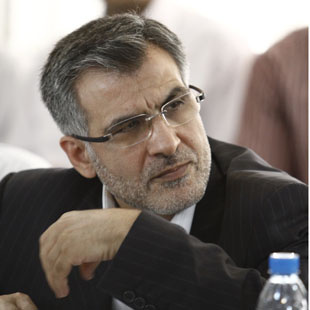The Assassination of Rabbani, and the Bleakest Days for Afghan Policy

IRD: Why was Mr. Rabbani an important figure in Afghanistan?
MB: In short, as the oldest jihadi figure for the Afghan people and parties, he organized campaigns several times from Zahir Shah’s reign onwards. At the end of Zaher Shah’s time and at the time of Davoud, Rabbani continued his combat against the Afghan government of the day, accompanied by the Islamic Movement. In the presence of the Soviet Union’s forces and the rule of the Communists in Afghanistan, he organized one of the most important jihad groups combating the occupation of the country, and played the same role in the part ruled by the Taliban. Practically, he campaigned for three or four periods. As you know, he was also the president of Afghanistan for one period and continued his political career as the representative of Badakhshan in the Afghan parliament. From this viewpoint, he has a very positive background in defending Islamic values in the past decades in Afghanistan.
This background caused Rabbani be the center of many issues. Although he was chosen as the head of the Peace High Council, practically in the Mujahideen circles he was the only person with the highest acceptability and who could be the center of all domestic issues.
IRD: What was the Taliban’s incentive in assassinating Mr. Rabbani?
MB: Due to the Mr. Rabbani’s background, some radical and rebellious groups in Afghanistan were assigned to assassinate him to challenge the peaceful processes. Therefore, the assassination was thoroughly organized, carried out by the rebellious groups as the radical and rebellious groups’ direct military confrontation with the government forces entered a new phase, exerting psychological and political pressure.
IRD: In the last year, some incentives were granted to the Taliban simultaneously with the formation of the Peace High Council. Did it carry any message for those who sought dialogue as the solution to the Afghan crisis?
MB: It cannot be claimed that dialogue and negotiation can be eliminated from the political solutions list. However, it is not true either that dialogue may work in the short run. It is noteworthy that this wrong proposition-- that dialogue can solve domestic and regional problems in the short run-- is expressed due to the incorrect evaluation of the Western forces’ interaction with the rebellious groups. It can be concluded that the wrong evaluation of the negotiations created this wrong proposition, and the evidence is the assassination of one of the most influential figures, while public opinion was that the superregional countries’ interaction in Afghanistan may have a positive effect on the country.
IRD: Do you think that the Peace High Council will continue to exist after this event has occurred?
MB: This depends on the Afghan officials’ reaction. But as I mentioned, it is too soon to decide, and more time is required for Afghan officials to come to a reasonable conclusion-- unaffected by the emotional atmosphere-- while negotiations and talks are tools that should never be ignored. It is true that the radical movements and parties do not like any peaceful solution, but finally it is the Afghan officials who will decide in this regard.

